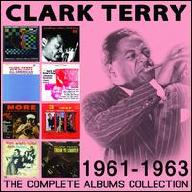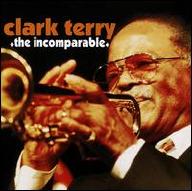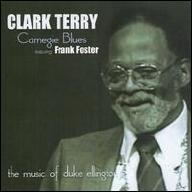Clark Terry
from St. Louis, MO
December 14, 1920 - February 21, 2015 (age 94)
Biography
Possessor of the happiest sound in jazz, flügelhornist Clark Terry always played music that was exuberant, swinging, and fun. A brilliant (and very distinctive) soloist, Terry gained fame for his "Mumbles" vocals (which started as a satire of the less intelligible ancient blues singers) and was also an enthusiastic educator. He gained early experience playing trumpet in the viable St. Louis jazz scene of the early '40s (where he was an inspiration for Miles Davis) and, after performing in a Navy band during World War II, he gained a strong reputation playing with the big band of Charlie Barnet (1947-1948), the orchestra and small groups of Count Basie (1948-1951), and particularly with Duke Ellington (1951-1959). Terry, a versatile swing/bop soloist who started specializing on flügelhorn in the mid-'50s, had many features with Ellington (including Perdido), and started leading his own record dates during that era. He visited Europe with Harold Arlen's unsuccessful Free & Easy show of 1959-1960 as part of Quincy Jones' Orchestra, and then joined the staff of NBC where he was a regular member of the Tonight Show Orchestra. He recorded regularly in the '60s, including a classic set with the Oscar Peterson Trio and several dates with the quintet he co-led with valve trombonist Bob Brookmeyer. Throughout the '70s, '80s, and '90s, Terry remained a major force, recording and performing in a wide variety of settings, including as the head of his short-lived big band in the mid-'70s, with all-star groups for Pablo, and as a guest artist who provided happiness in every note he played. Terry died on February 21, 2015, at age 94, after an extended battle with diabetes. ~ Scott Yanow, Rovi
Top Tracks
Albums
Videos
Close















